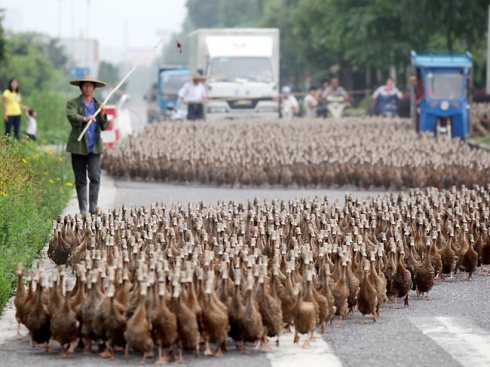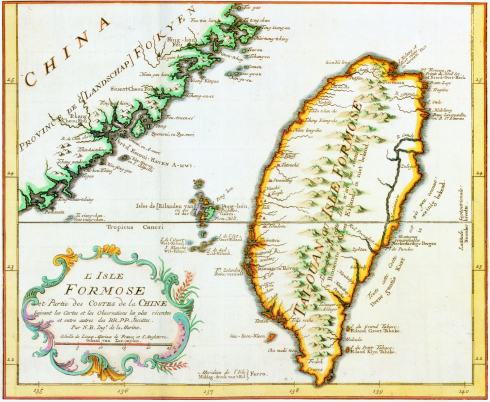You are currently browsing the tag archive for the ‘peasantry’ tag.

The Peasant and the Birdnester (Pieter Bruegel the Elder, 1568) oil on panel
Ferrebeekeeper has blogged a great deal about fancy modern colors like folly, Mountbatten pink, mauve, and greenery. The names and high-falutin’ synthetic chemistry underlying the pigmentation of these faddish vogue colors really is quite recent (in the grand scheme of things I mean). Today though, to celebrate autumn, we have a very beautiful color which has an ancient name (which goes back to at least Middle English). According to color theorists, russet is a tertiary color–the result of combining purple and orange. What this means in practice is that russet is a medium dark reddish-brown which looks like the floor of a forest or the unswept corners of a poultry yard. We know the word was around at least in 1363, because an English statute of that year required poor people to wear russet (although it may have been referring to a coarse woolen cloth dyed with woad and madder which, for a time was synonymous with the color).

Despite its associations with the hempen homespun smallfolk (or perhaps because of it), russet has an astonishing literary history. The first scene of the first act of Hamlet ends when “the morn, in russet mantle clad, walks o’er the dew of yon high eastward hill.” Russet, being a somber earthen color, was associated with autumn, death, and mourning (which is perhaps why we find it in the haunted scene in Hamlet). Cromwell also referred to the color when he preferred a disciplined and seasoned captain in russet (e.g. a commoner with a commission) to a noble soldier “which you call a gentleman and is nothing else.”

A Bearded Old Man, Wearing a Brown Coat and Russet Hat(Rembrandt van Rijn, 1651) Oil on Canvas
There is also an artistic truth behind the color which is painful for the excitable young artist to grasp. Drawings made in medium and dark browns have a way of coming out far more beautifully than drawings made with brighter and more fashionable colors. When I was young I kept making drawings with violet or blood red. Why didn’t I listen to Shakespeare and Cromwell and use russet. Courtiers of the 14th century may have sneered at it (and brown is perhaps still not the most chic color on the catwalk) but it is beautiful and it suits living things very well…which is good, for here in the temperate northern world we are about to embark upon an entire season of russet.

Zhu Yigui was a Fujianese duck farmer who lived in Formosa (now Taiwan) during the 18th century. He was said to command his ducks with martial precision: according to legend, he even trained his ducks to march in military formations like soldiers (although mother ducks have long mastered the same feat with their ducklings–so perhaps Zhu’s soldierly duck-training prowess was less illustrious than legend would make it seem). In 1721 an earthquake rocked the island and caused extensive damage. Some people lost everything. The imperial prefect of Formosa was not interested in hearing excuses and levied punitive taxes on the peasantry—even though smallholders were trying to cope with disastrous losses from the earthquake.
Unable to put up with this abuse from the incompetent Qing authorities, the people rose in rebellion. When they were looking for a leader they remembered the duck-raising prowess of Zhu Yigui who thus became a general. On the 19th of April of 1721 he attacked and captured the city of Gangshan. Soon other rebel factions joined the rebellion, as did the oft-abused aboriginal people of Formosa. Zhu Yigui was given the sobriquet “Mother Duck King.” His forces went on to capture Tainan, the island’s capital without even fighting.
Unfortunately, Zhu’s mastery over ducks did not adequately prepare him for dealing with rebels. He quarreled with his fellow rebel captains just as the Machu relief army was landing on Formosa. The rebels fell apart in pitched battle with professional soldiers and Zhu Yigui was captured and executed. Because of these troubling events duck farming was prohibited in Central Taiwan for many years. Still, whenever one compiles a list of illustrious duck-breeders from the Qing dynasty, Zhu’s name is certainly on the list!


